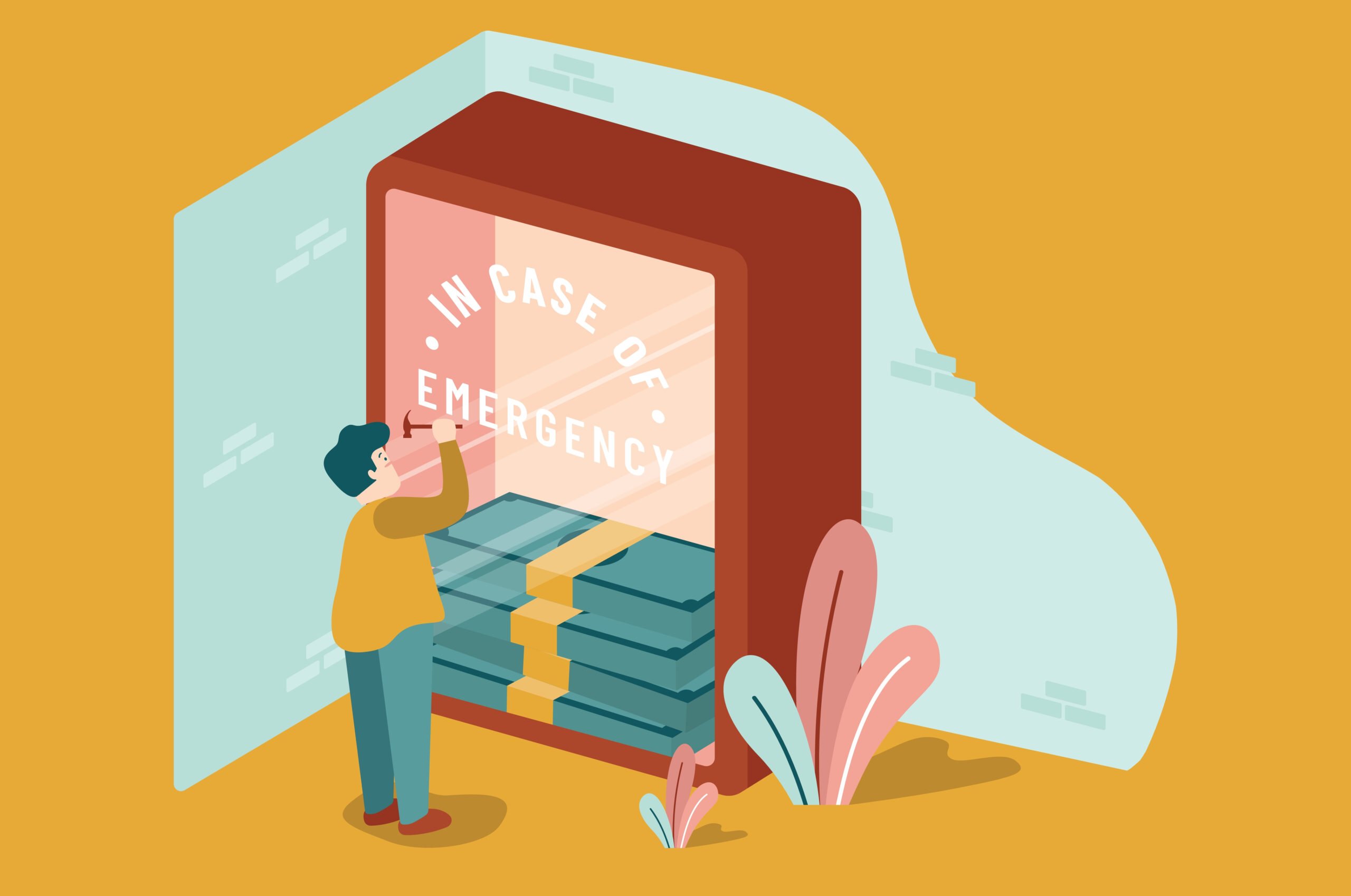Summary: Why Do I Need an Emergency Fund?
Although planning for financial independence forces us to face so much future uncertainty, something we can feel certain about is that unexpected expenses will arise along our journey. We shouldn’t let the unpredictability of the future stop us from chasing our goals and our vision – we should plan for it instead. One of the best ways to ensure our financial plans stay on track is by building an emergency fund.
What is an Emergency Fund?
An emergency fund is simply an amount of money set aside and earmarked specifically for large unexpected expenses like a car repair, replacing a furnace or hot water tank, or an uninsured medical or dental expense.
Without an emergency fund, instead of using cash to fund unforeseen expenses, we are left to either accumulate high interest debt or liquidate investments, both of which can be assured to decrease our net worth and slow progress towards our goals.
How Much Savings Should You Have?
A common rule of thumb cited by personal finance experts is that you should aim for three to six months of basic living expenses in your emergency fund. The amount that makes sense for you will depend on your unique financial circumstances and what you are comfortable with, which could mean saving up to twelve months of basic living expenses.
- Single vs. Dual Income Household: If you are the only one earning an income in your household, you’ll want to err on the side of having a higher level of savings in your emergency fund, and should consider six to twelve months depending on your job security and variability of income.
If you live in a dual income household, you may be more comfortable with three to six months of expenses as you have another income to fall back on. You should also take into consideration the job security of both you and your partner, as well as the variability of both of your incomes.
- Job Security: Given job loss can pose a major risk to our financial plans, the more secure your employment, the less you need to have in your emergency fund. For example, a doctor with a thriving practice and a teaching position at a university likely requires less of an emergency fund than a software engineer working for a startup. If you’re unsure how secure your employment is, you may want to err on the side of building a larger emergency fund.
- Variability of Income: The way income is earned can vary based on industry, position and whether you are employed vs. self-employed. The percentage of your income that is guaranteed vs. variable is an important consideration in deciding how much to save in your emergency fund. For example, someone who works in finance and earns 100% of their income in the form of a guaranteed salary will require less of an emergency fund than a sales executive at a startup whose compensation is 50% commission and bonus based on performance or a real estate agent earning 100% commission. Another factor that can lead to income variability is seasonality of employment which is common in industries like farming, construction, and oil and gas. The more variable your income, the more you likely want to target saving in your emergency fund.
How to Build Your Emergency Fund
While saving three to twelve months might feel overwhelming if you’re starting from scratch, keep in mind that emergency funds aren’t built overnight. It will take time to reach your goal but you can begin today. The easiest way to grow your emergency fund is by automating contributions from each paycheque as a part of your reverse budget. Start with an amount that’s manageable and aim to increase the size of your contributions every few months. Although your target might be six months of expenses, set micro-goals that feel much more attainable in the short term, like aiming to save $1,500 in the next three months. If this still feels too daunting, break it down even further into a monthly goal.
Where Should You Keep it?
Since you may need to access your emergency fund with short notice and you can’t predict when, these funds should be kept somewhere safe that you can easily access. In my experience, the best place to keep an emergency fund is in a high interest savings account at an online bank that is separate from the bank housing your chequing account. This ensures you earn the maximum amount of interest on your savings while it remains fully accessible to you, without being tempted to dip into the account during times that don’t truly constitute an emergency.
A common question I get is whether an emergency fund should be invested. My strong opinion is that it should not be, for the reason that the stock market can fluctuate significantly in the short term. If your investments are down in value when an unexpected expense occurs, you would then be forced to sell your investments at a loss and risk not having access to the amount of funds the financial emergency requires.
Don’t Skip This Foundational Step
While it can be tempting to jump ahead to more exciting aspects of financial planning like investing, don’t make the mistake of skipping over this critical step in building a strong financial foundation. With an emergency fund in place you can progress towards your financial goals feeling confident that you’ll be prepared when life happens and unexpected expenses arise.
For more articles on money management and personal finance by Jarrett, click here.

